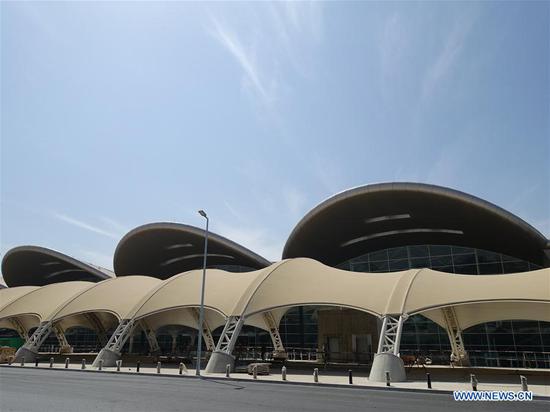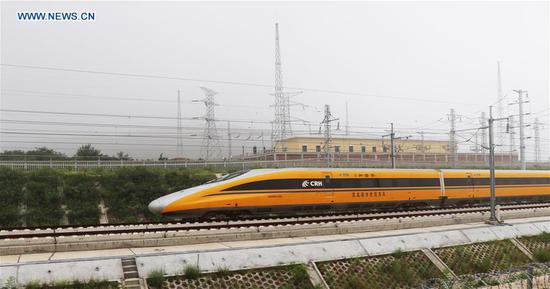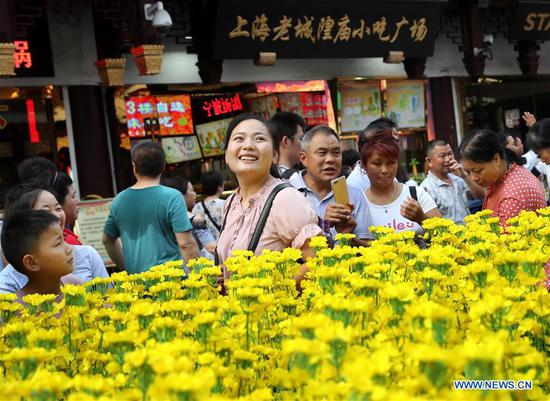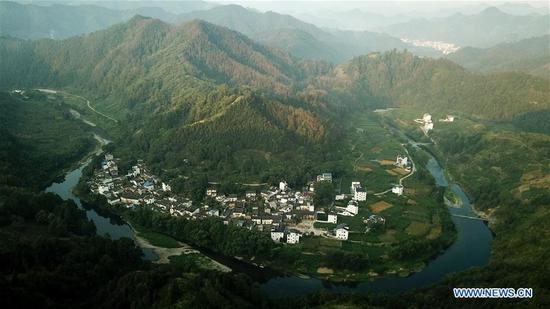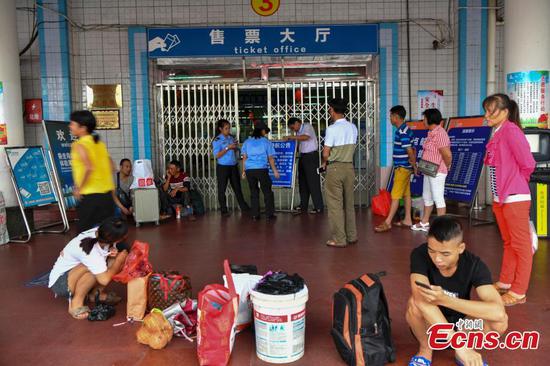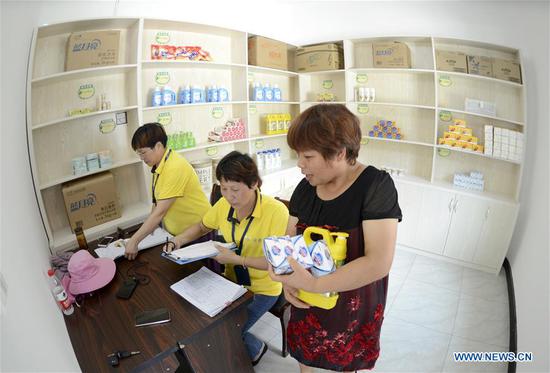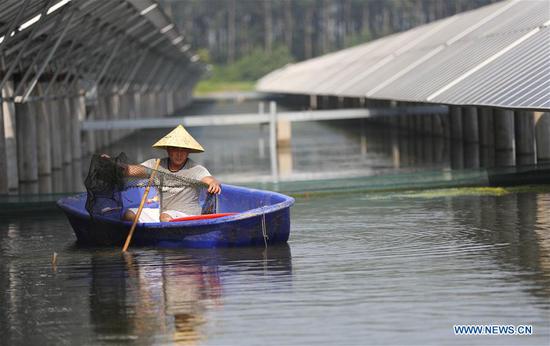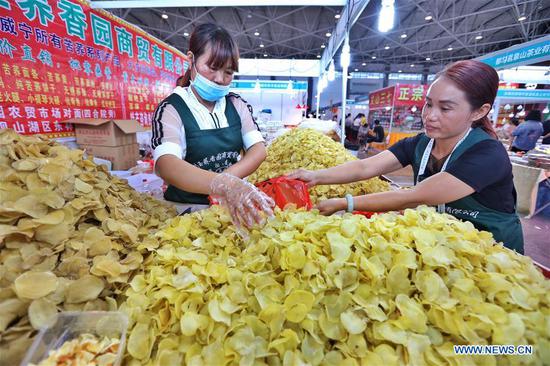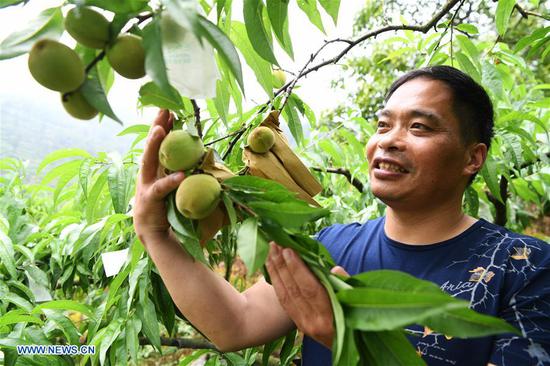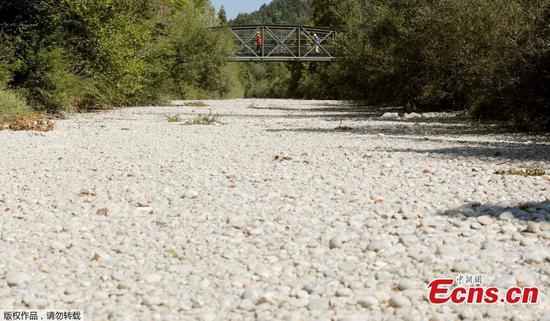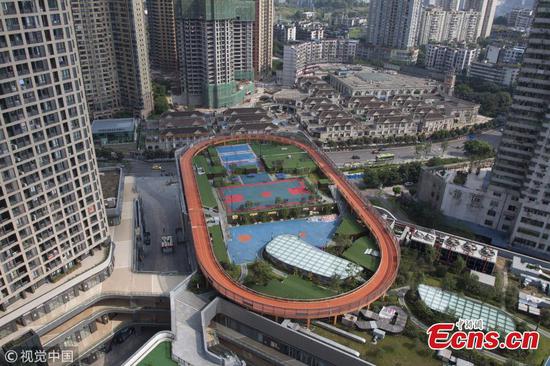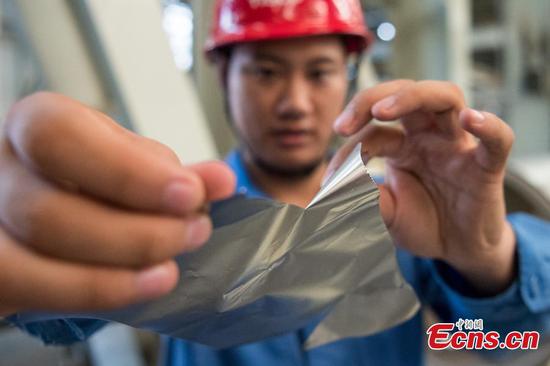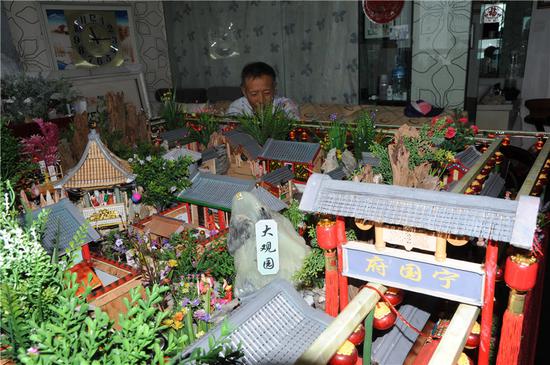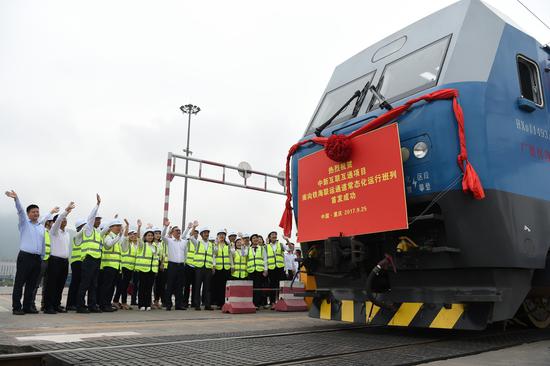
Workers cheer the launch of a transshipment link connecting China and Singapore at Chongqing on Sept. 25, 2017. The link is part of the corridor comprising railway and sea lines that shorten cargo transport to the ASEAN region by 20 days. (Photo/Xinhua)
The Southern Transport Corridor, a logistics network linking China's western cities and ASEAN countries, is growing to be a vital artery.
Goods from the western provinces of China can be shipped to Singapore through the Beibu Gulf in South China's Guangxi Zhuang autonomous region by road, railway and waterways. The route also connects Europe to Southeast Asia, with Chongqing as the vital railway link on the route.
"The logistics network is a crucial step for China to strengthen its trade ties with not only countries along the route but also with those that need transshipment, like Australia," said Lan Yongxin, deputy director at the Guangxi-ASEAN Cooperation Office.
The Southern Transport Corridor, whose full name is the China-Singapore (Chongqing) Connectivity Initiative Southern Transport Corridor, is a joint venture between China and Singapore. It is positioned as new strategic pivot in Southwest and Central China's opening-up.
The corridor is expected to offer a shorter, quicker and cheaper trade route between western China and Southeast Asia, besides helping the country to expand its economic cooperation with Europe and the rest of the world.
Shipments from Chongqing now take two days to arrive in the Beibu Gulf and travel about 1,450 kilometers by train, before departing to South Asia. In the past, journeys for the same purpose took about 14 days to Shanghai by the riverways before being shipped to South Asia.
"A well-developed logistics network is essential to boost trade and economy," Lan said.
In July, the railway line linking the Beibu Gulf and Chongqing started daily cargo services. From last September to July this year, two-way shipping by railways grew 355 times year-on-year and has ferried about 19,750 containers, according to news website CNR.
Lan said the new route has facilitated more cooperation in logistics between China and ASEAN countries.
Singapore-based logistics company Pacific International Lines Pte Ltd, for instance, has cooperated with Guangxi Beibu Gulf International Port Group to set up a joint venture called Beibu Gulf-PSA International Container Terminal Co Ltd.
Pacific International Lines also plans to invest 10 billion yuan ($1.46 billion) to set up an international logistics and industrial park which will be operated as a trading platform and business incubator.
"The segment of cold chain logistics has seen rapid development, thanks to the Southern Transport Corridor," said Lan. "Many goods imported into China are tropical fruits and seafood that are perishable and require low-temperature transport.
"Many related businesses have started to boom along the route and many Chinese companies are also investing in ASEAN companies."
Genomics company BGI, for instance, has been investing in ASEAN companies and setting up industrial parks for technology innovation and to grow farm products.
"The government is also promoting trade expos and summits, like the upcoming China-ASEAN Expo," said Lan.
Aiming at promoting bilateral trade and investment, this year's China-ASEAN Expo, now in its 15th edition, will be held from Sept 12 to 15 in Nanning, capital of Guangxi.
"Going forward, we expect the Southern Transport Corridor to play a larger role in facilitating cross-border trade," said Lan.














